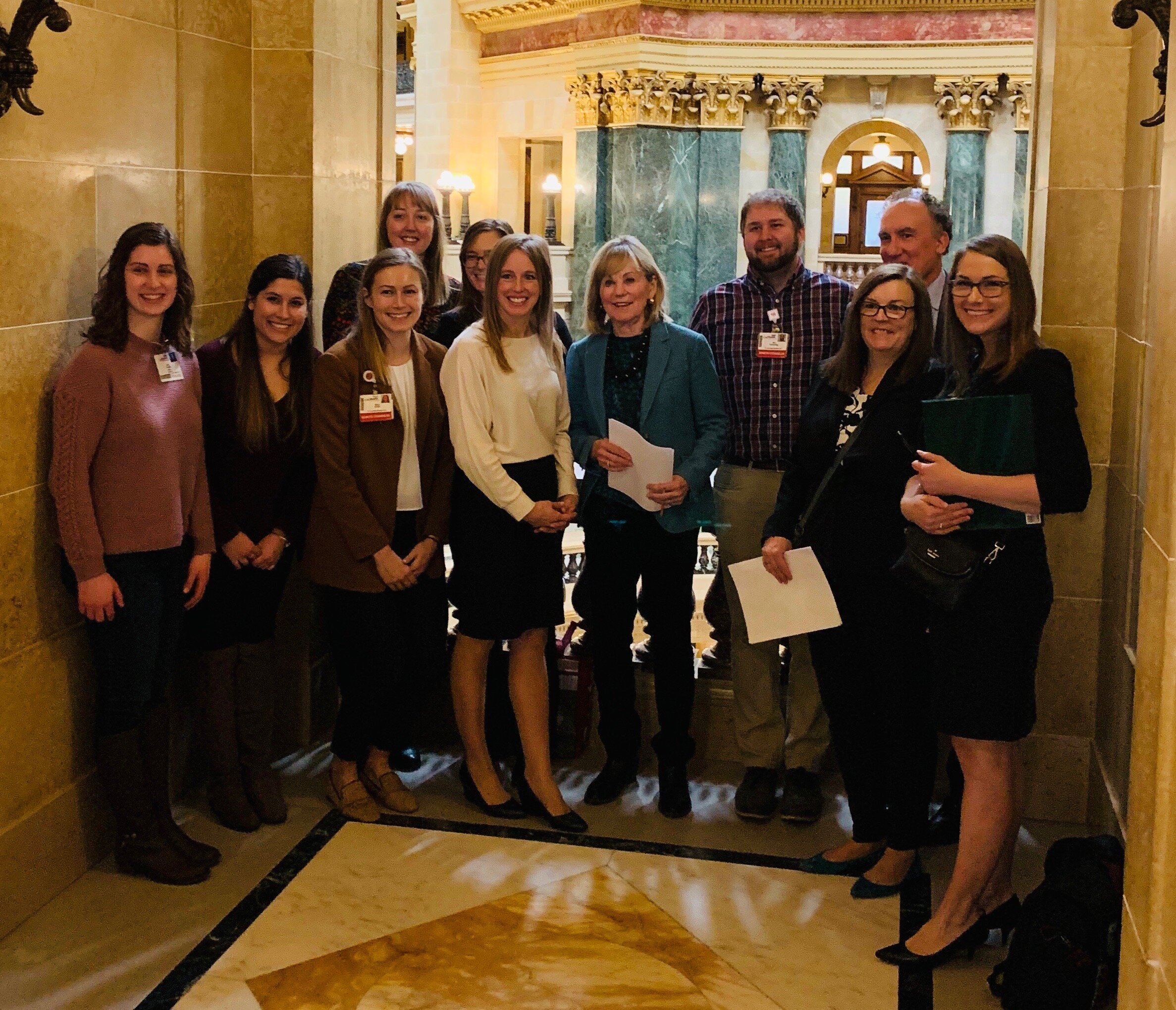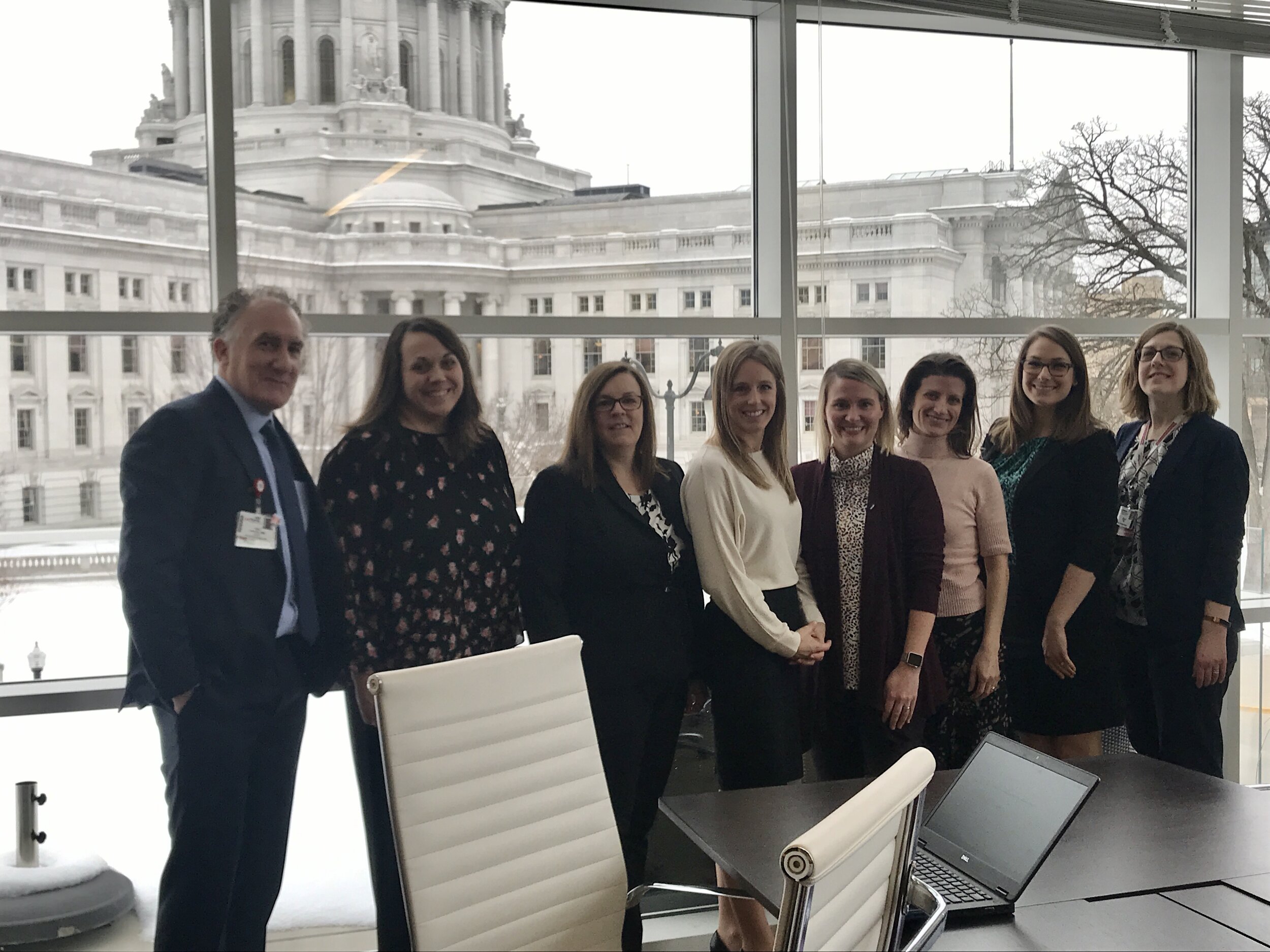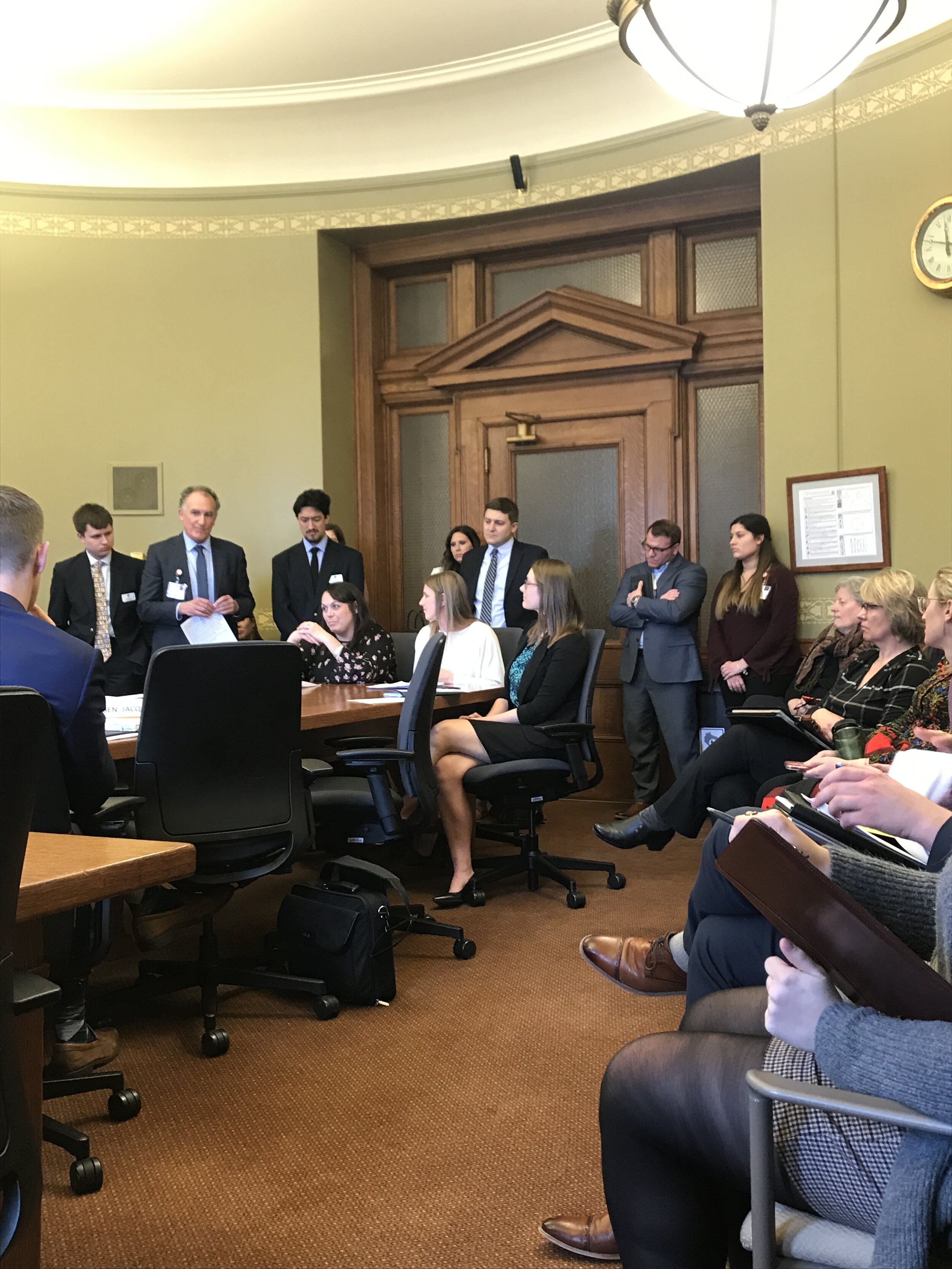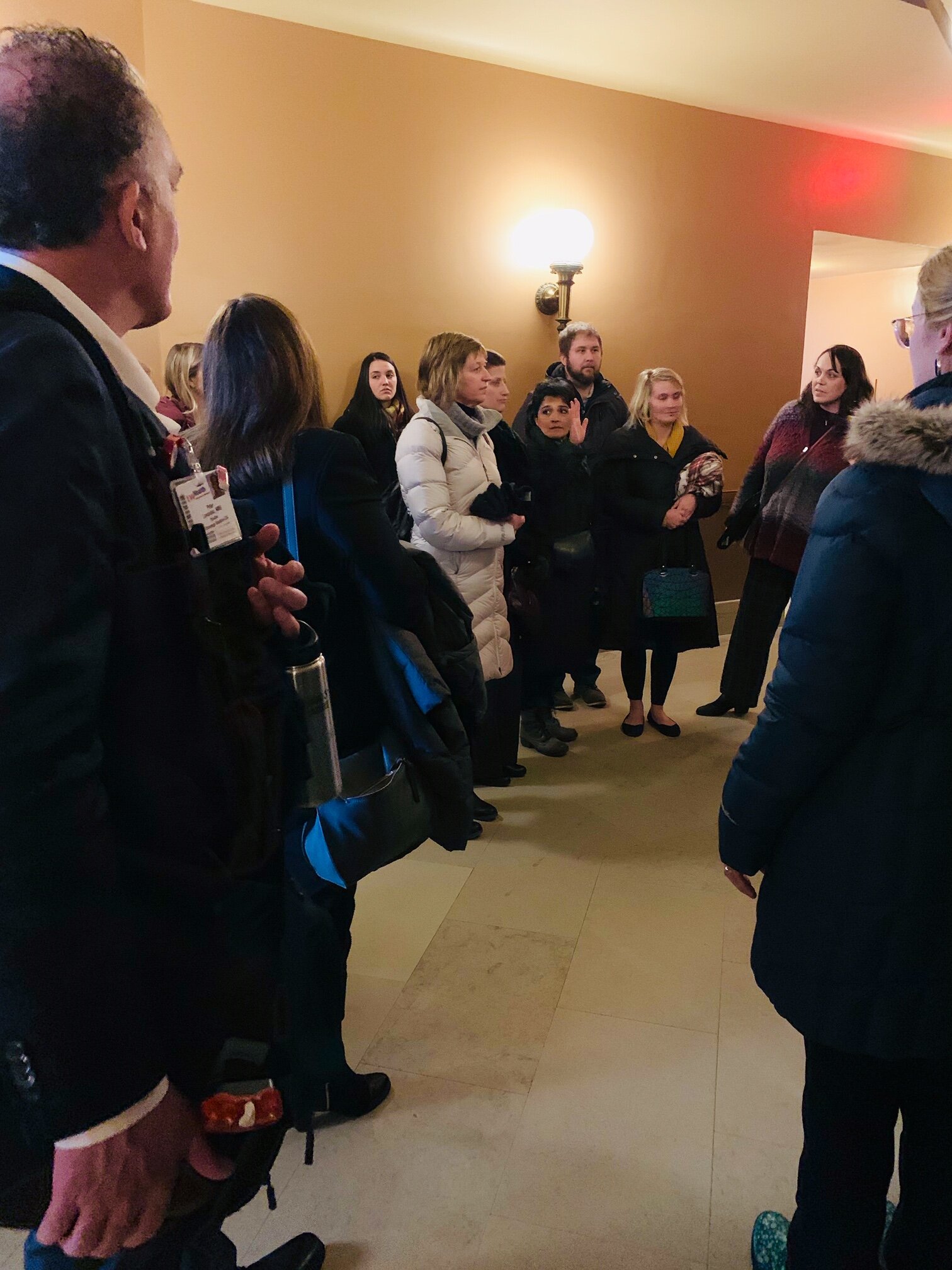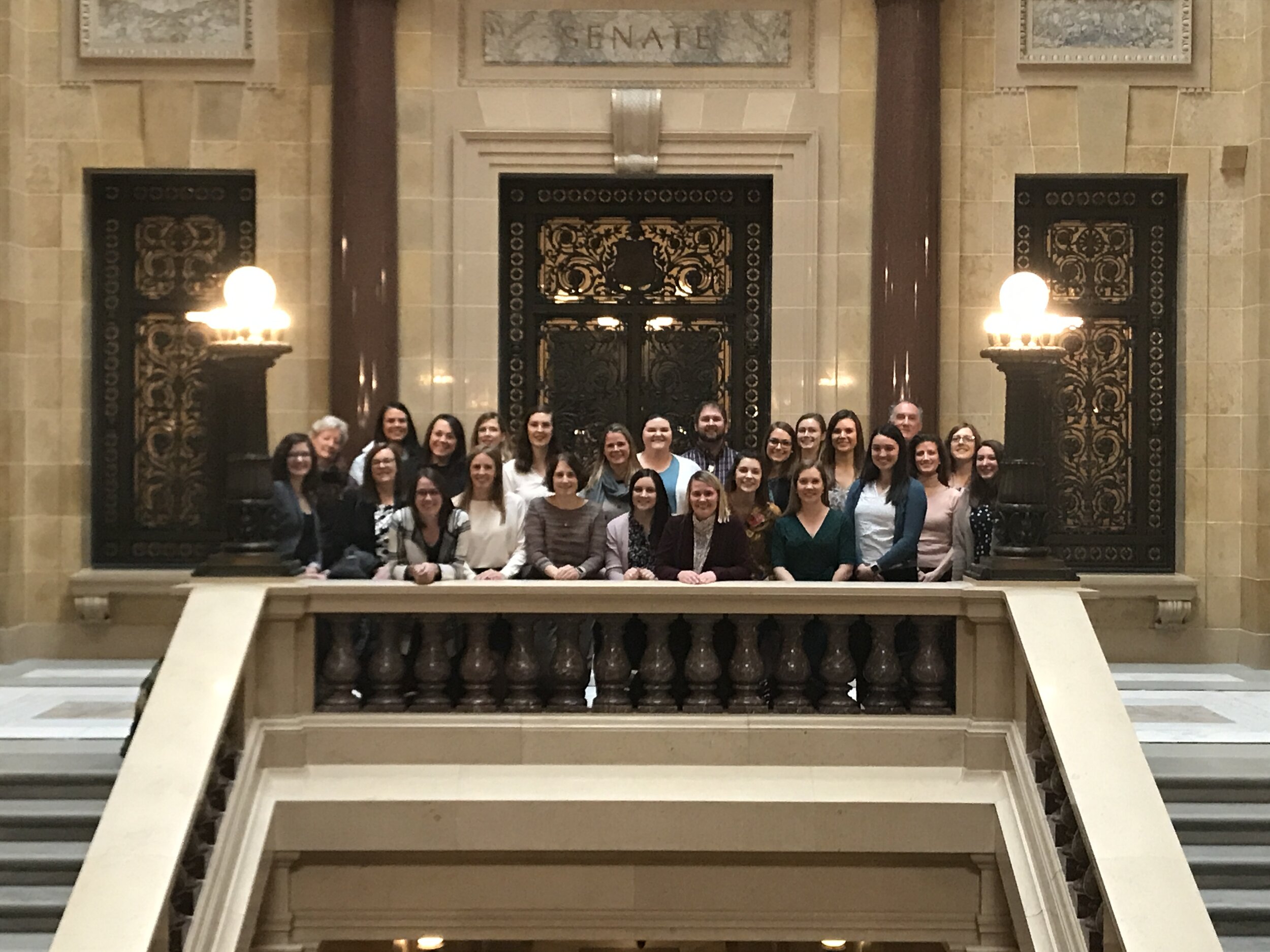Licensure in Wisconsin
One of the primary goals of WIGCA is to facilitate the effort to gain licensure in our state so that our medical professionals are appropriately accredited and the residents of Wisconsin are protected.
WE DID IT!
A HUGE Thank You to everyone who worked non-stop to make Genetic Counseling Licensure possible 2023!
Now the work begins (again!) Written licensure policies and contracts are ongoing and WIGCA members will be updated as more milestones are met.
The application for licensure for genetic counselors in the state of Wisconsin went live on May 1, 2023! Visit here for details! Have questions and are a WIGCA member? Check out our FAQs in the members only section to see if your question has been answered!
The passing of Wisconsin Act 251 in 2022 marked a significant milestone in the recognition of the important role that genetic counselors play in providing healthcare services to patients. The act recognizes genetic counselors as licensed healthcare providers and establishes a mechanism for the credentialing of genetic counselors in Wisconsin. The Genetic Counselors Affiliated Credentialing Board was created to oversee the implementation of the act and ensure that the new law is enforced as intended. This board is made up of experts in the field of genetics and genetic counseling, and they are responsible for reviewing and approving the licensing of genetic counselors in the state. Their work will help to ensure that patients receive the best possible care from qualified and competent genetic counselors who are trained to provide accurate and reliable information about genetic testing, diagnosis, and treatment options.
For the most up-to-date information on the Genetic Counselor Licensing efforts please visit: https://dsps.wi.gov/Pages/BoardsCouncils/GeneticCounselors/Default.aspx
History of Genetic Counseling Licensure in Wisconsin
2021 Wisconsin Act 251:
Increase access to genetic counselors, which should increase patient access to high quality genetic services.
Align with legislation enacted for other allied-health practitioners.
The bill WOULD NOT PRECLUDE other practitioners from providing genetic counseling if these activities are within their own scopes of practice.
States Issuing Licenses for Genetic Counselors 2023 NSGC State Map
WHY DOES LICENSURE MATTER?
Genetic testing can save lives through tailored medical care and targeted treatment options, but misusing genetic results can lead to unnecessary and expensive surgeries or therapies, resulting in devastating physical, emotional, and financial harm to patients. Ordering inappropriate testing can also waste thousands of healthcare dollars.
Studies show:
>30% of non-genetics medical providers misinterpret results of genetic tests.
>$60,000 can be saved by institutions per month by involving a GC in the genetic testing process
>$4 billion can be saved over 10 years by improving payor access to genetic counseling
There are over 100 genetic counselors practicing in Wisconsin, a majority of whom provide direct patient care in specialties such as obstetrics, oncology, pediatrics, neurology, cardiology, and ophthalmology. Genetic counselors also work for genetic testing laboratories and health plans. There are also a number of genetic counselors working on public health genomics programs including newborn screening and chronic disease genomics.
2019-2020 Licensure Efforts
We cannot say THANK YOU enough to the courageous WI GCs who traveled to Madison and testified as poised ambassadors of this bill and of our profession at both committee meetings!!!
Genetic Counselors in the State of Wisconsin
*Dawson, Carlee; et al. (2020). Does Supply Equal Demand? The Workforce of Direct Patient Care Genetic Counselors in Wisconsin. WMJ : official publication of the State Medical Society of Wisconsin. 119. 158-164.
A recent survey analyzed the distribution of Genetic Counselors in the state of Wisconsin:*
Workforce supply and demand models suggest that there should be 1 fulltime equivalent (FTE) genetic counselor providing direct patient care (in clinics and hospitals) for every 75,000 individuals in the population.
Based on the projected need, Wisconsin has less than 50% (37.18 FTE) of the needed genetic counselors to meet the clinical demand.*
The study ultimately found that the workforce shortage in WI results in long patient wait times and an inequitable distribution of services throughout the state, as well as increased stress in the profession and higher considerations to leave job or switch to non-clinical roles.


